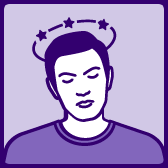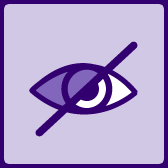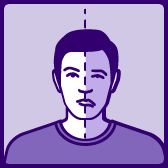If you have a medical emergency, please call 9-1-1.
Stroke is a Medical Emergency
If you think you or someone else is having a stroke, call 9-1-1 immediately and note the time when symptoms first appeared. Do not drive yourself or wait for a ride from a friend or family member. Have an ambulance take you to a hospital that is a stroke receiving center right away.
Ask your physician for tips on managing your current health conditions to reduce your risk for stroke. Take charge of your health, so you not only know how to reduce your risk, but can recognize the signs of stroke
Designated MemorialCare Stroke Receiving Centers
Stroke Warning Signs or Symptoms
Signs or symptoms for stroke seen in both men and women may include sudden:
- Numbness or weakness of face, arm or leg, especially on one side of the body.
- Confusion, trouble speaking or understanding.
- Difficulty seeing in one or both eyes.
- Trouble walking, dizziness, loss of balance or coordination.
- Sudden, onset headache.
*Signs/symptoms compiled from the National Stroke Association.
If You Think Someone May Be Having a Stroke, B.E. F.A.S.T:

 | B – BALANCEIs there a sudden loss of balance or coordination? |
 | E – EYESAre there sudden vision changes? |
 | F – FACEDoes one side of the face droop when the person smiles? |
 | A – ARMor Leg Weakness: Does one arm/leg drift downward when raised? |
 | S – SPEECHHaving difficulty understanding speech? Is speech slurred or strange? |
 | T – TIMEIf you observe any of these signs, call 9-1-1 immediately. |
Every minute counts for stroke patients and knowing how to B.E. F.A.S.T. can lead patients to the stroke treatments they desperately need. Potentially life-saving medication can be administered within three hours of the sudden symptom onset to reverse stroke.
If you think you or someone else is having a stroke, call 9-1-1 immediately and note the time when symptoms first appeared.
Signos de Accidente Cerebrovascular
Los estudios muestran que, si bien los adultos hispanos actualmente tienen una tasa similar de accidente cerebrovascular que sus contrapartes blancas no hispanas, no son tan conscientes de los síntomas. Queremos animar a nuestra comunidad a conocer los signos de un accidente cerebrovascular, así como a comprender los factores de riesgo de un accidente cerebrovascular, como la presión arterial alta, el colesterol alto, el tabaquismo, la obesidad y la diabetes. La cardióloga de MemorialCare Medical Group, la Dra. Christina Rodríguez Ruiz, comparte un acrónimo para ayudarle a recordar los signos y síntomas del accidente cerebrovascular.
R-Rostro caído
A-Alteración del equilibrio
P-Pérdida de la fuerza en el brazo o una pierna
I-Impedimento visual repentino
D-Dificultad para hablar
O-Obtén ayuda y llama al 911
Obtenga más información sobre la prevención de accidentes cerebrovasculares.